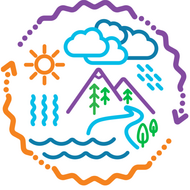ClimeTime Resource Portal
(View Complete Item Description)The Washington State Legislature has invested $16 million in climate science education since 2018. This portal contains links to professional learning resources and instructional materials developed by the ClimeTime network of educational partners who came together as a result of this funding. ClimeTime partners provide climate science professional learning to Washington science teachers, using innovative strategies and effective practices. Many projects also create instructional materials aligned with the Next Generation Science Standards, to support student climate science learning.
Material Type: Activity/Lab, Assessment, Lesson, Lesson Plan, Reading, Teaching/Learning Strategy




















